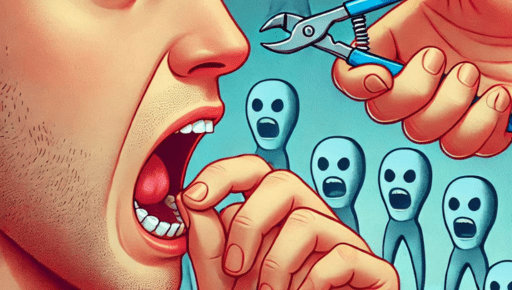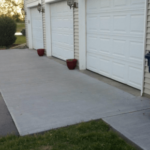The skilled family dentist in Columbia, MD, has seen firsthand the damaging effects of nail biting on teeth. This common habit, also known as onychophagia, can lead to a range of oral health problems, from tooth wear and tear to gum recession and tooth misalignment. At our practice, we’ve helped many patients overcome nail biting and achieve healthier, more beautiful smiles.
In this article, we’ll explore the impact of nail biting on teeth and provide tips on how to break the habit.

What Are The Effects of Nail Biting on Teeth?
Nail biting can cause a range of problems for our teeth, including:
- Tooth Wear and Tear: Nail biting can cause our teeth to wear down and become misshapen. This can lead to problems with biting and chewing, and can even affect the appearance of our smile.
- Tooth Chips and Cracks: The constant pressure of biting our nails can cause our teeth to chip or crack. This can be painful and can even lead to more serious problems, such as tooth decay or abscesses.
- Gum Recession: Nail biting can cause our gums to recede, exposing the roots of our teeth. This can make our teeth more sensitive and can even lead to tooth loss.
- Tooth Misalignment: The constant pressure of nail biting can cause our teeth to become misaligned. This can lead to problems with biting and chewing, and can even affect the appearance of our smile.
- Dental Work Damage: If you have dental work such as fillings, crowns, or bridges, nail biting can cause damage to these restorations.
Why Do People Bite Their Nails?
Despite the negative effects of nail biting on our teeth, many people struggle to break the habit. There are several reasons why people bite their nails, including:
- Stress and Anxiety: Many people bite their nails as a way to cope with stress and anxiety.
- Boredom: Some people bite their nails due to boredom or habit.
- Nervousness: Nail biting can be a nervous habit, often accompanied by other habits such as teeth grinding or clenching.
How to Break the Nail Biting Habit?
Breaking the nail-biting habit can be challenging, but several strategies can help. Here are a few tips:
- Identify Your Triggers: The first step to breaking the nail-biting habit is to identify your triggers. Do you bite your nails when you’re stressed or bored? Once you know what triggers your nail biting, you can develop strategies to avoid or manage these triggers.
- Keep Your Nails Trimmed: Keeping your nails trimmed can make it more difficult to bite them. Try keeping your nails trimmed short, and use a nail file to smooth out any rough edges.
- Find a Healthy Alternative: Instead of biting your nails, try finding a healthy alternative. This could be chewing gum, eating sunflower seeds, or engaging in a hobby such as knitting or drawing.
- Use a Nail Biting Deterrent: There are a number of products available that can help deter nail biting. These include nail-biting deterrents such as bitter-tasting nail polish, and physical barriers such as stickers or bandages.
- Seek Professional Help: If you’re struggling to break the nail-biting habit on your own, consider seeking professional help. A therapist or counselor can help you identify the underlying causes of your nail biting and develop strategies to overcome it.
Bottom Line
Nail biting can have serious consequences for our oral health, including tooth wear and tear, tooth chips and cracks, gum recession, tooth misalignment, and damage to dental work. By understanding the effects of nail biting on our teeth and developing strategies to break the habit, we can protect our oral health and maintain a healthy, beautiful smile.


